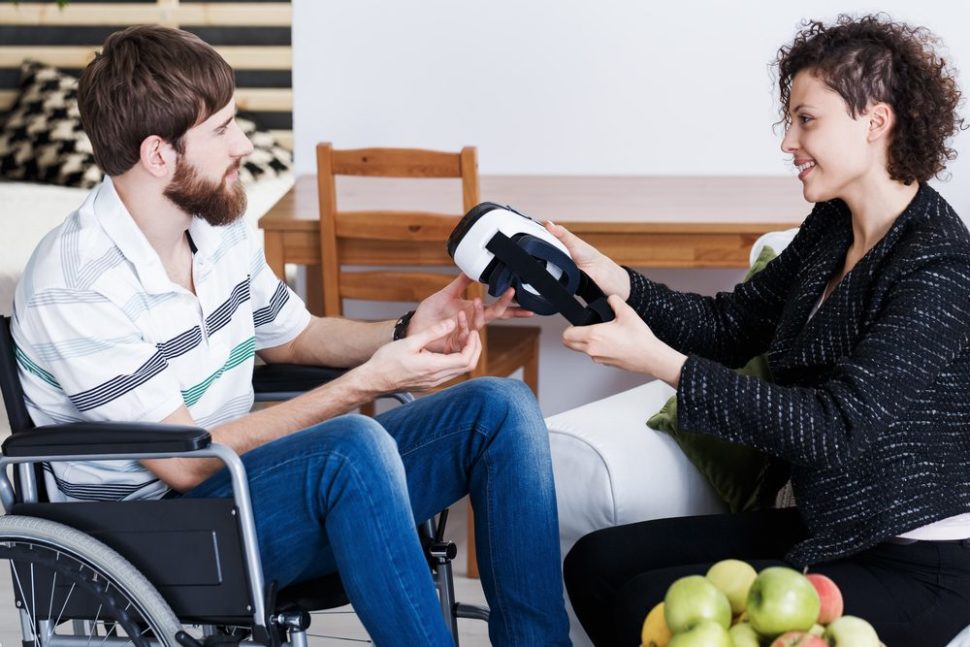Behavioral therapists are starting to use VR to expose their patients to sources of distress without leaving the office.
Exposure therapy, a technique within behavioral therapy, ensures a structured, repeated and progressive confrontation between the subject and stimuli that usually triggers inadequate behavioral or emotional responses.
Behavioral therapists use VR as a tool in exposure therapy.Click To TweetThe process often involves revisiting places and situations with traumatic memories, but what if therapists can expose their patients to stimulus virtually?
Virtual Exposure Therapy
Exposure therapy is used by cognitive-behavioral therapists. Exposure allows patients to see for themselves that what they fear is less serious than they think.
In addition, through this therapy, they also get to know how to react in anxiety-filled situations.
They learn which behavior to adopt in the face of common sources of anxiety, or how to manage certain social situations if they suffer from social phobia.
Exposure therapy is used for most anxiety disorders, such as obsessive-compulsive disorder, post-traumatic stress disorder, and different phobias.
Thanks to the development of digital technologies, it is now possible for therapists to get novel tools in their arsenal.
VR is no longer just for video games. Digital companies are working to make them mental therapy tools, to treat phobias, anxiety, depression and all sorts of addictions.
One of the principles of cognitive psychotherapies is to gradually expose the patient to their fears (heights, spiders, airplane, claustrophobic places, and etc.) in order to help them dedramatize these situations.
With a VR app and a headset, therapists can put their patient in a digital environment, and immerse them in the dreaded situation, virtually and safely.
If, for example, the patient is afraid to speak in public, they’ll find themselves in front of a room filled with people, and they’ll have the chance to train virtually before confronting the same situation in the real world.
VR to Improve Mental Healthcare
In the past, these practices were carried out by the imagination, or through practical yet costly means. Now, several startups have embarked on the discovery of new therapeutic avenues using VR.
This is the case of Limbix, a VR therapy start-up, which develops digital solutions and VR apps for psychotherapists.
Limbix offers VR exposure therapy app through a headset (Daydream View), which has been tested by some therapists and proven to be effective in treating patients with acute anxiety.
Limbix is not alone in this niche. Other U.S. startups are also working on VR therapy apps, such as Applied VR.
The convenience of VR apps for mental health care is apparent.
Of course, it’s up to the therapist to monitor the patient and guide the session. A VR headset doesn’t supplement for a skilled and practiced clinical psychologist.
VR apps can also be used for relaxation or meditation sessions in a bucolic landscape.
Virtually exposing the person to their phobias or fears is done in a particularly gentle manner because the therapist can control the parameters and make the exposure progressive–they won’t just shove someone with battle-induced PTSD into a firefight.
The physician can choose the appropriate environment: for example, a person with vertigo will be put inside an elevator hanging on the side of a skyscraper–yet without leaving the couch.



















Comments (0)
Most Recent